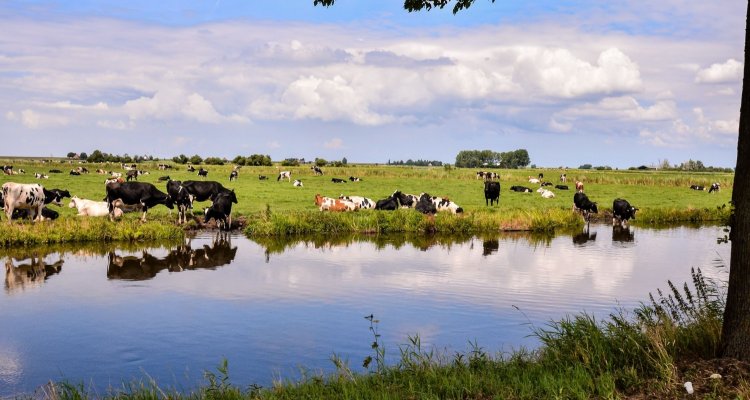
News
Botulism in cattle under closer scrutiny
Botulism in cattle appears to be an increasing problem, but options for treatment are lacking. Royal GD has started a study on botulism in cattle with the cooperation of Wageningen Bioveterinary Research (WBVR, part of Wageningen University & Research) and the pharmacy of the Faculty of Veterinary Medicine at Utrecht University. Subject to conditions, livestock farmers can apply a vaccine during this study.
The study on botulism in cattle focuses on identifying the number of cases and risk factors for botulism in cattle in the Netherlands. At the same time, it gives livestock farmers the opportunity to protect their animals through vaccination in case botulism occurs on their farms. The study is commissioned by the Ministry of Agriculture, Nature and Food Quality.
Annual
A number of cases of botulism in cattle occur annually in the Netherlands, usually caused by Botulinum neurotoxin type C or D, and often affecting a large proportion of animals on a farm. Through contaminated feed, cattle ingest the bacteria and toxins. The toxins are absorbed in the gastrointestinal tract and circulate throughout the body via the bloodstream. In the peripheral nerve endings, toxins prevent the transmission of nerve impulses, leading to flaccid paralysis. In severe cases, the animal may die due to paralysis of the respiratory muscles.
Vaccine
There are currently no medications available for the treatment of botulism in animals; no vaccines are registered in the Netherlands or the European Union (EU). Botulism vaccines are available outside the EU, but stricter EU regulations do not allow market authorisation of a vaccine in the EU. The exception to this rule is use for research purposes. With the research conducted in collaboration with Royal GD and the Faculty of Veterinary Medicine, the researchers anticipate that this study will provide valuable insights into the impact of vaccination on botulism control, as well as support the importance of maintaining vaccine availability. The findings from this research will be communicated to the European Commission, with the objective of potentially reinstating the utilization of botulism vaccines in cattle.